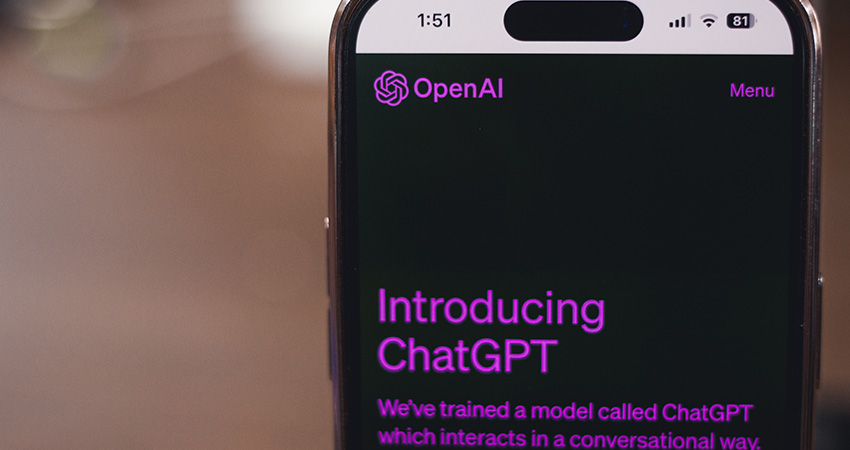The generative AI explosion, primed by OpenAI’s ChatGPT, continues to reach outward (Photo credit: Sanket Mishra on Unsplash)
It was quite a week in the ever-expanding universe of generative AI, as the arms race among tech titans escalates, new solutions proliferate and more retailers jump in with both feet.
A fairly good indicator: my inbox gets flooded daily with pitches from vendors touting some new solution or better mousetrap for retail and ecommerce companies that uses generative AI as a starting point. Applications range from search and discovery, product image creation and natural language-trained chatbots to “virtual stylists” and security tools to protect against AI-based opportunist fraudsters.
Google parent Alphabet, stung by intimations that it had been outpaced by Microsoft and its early-entrant, OpenAI-based ChatGPT, will launch its Magi AI-powered search tools in May, as was first reported by the New York Times. According to the NYT, the tools – built off Google’s Bard AI-powered chatbot – will just be released in the U.S. to an audience of 1 million users, with more features coming in the fall.
Amazon’s AWS cloud-computing division, meanwhile, entered the generative AI fray with news of Bedrock, a framework for creating foundational AI models designed more for corporate than consumer use. The initiative also includes custom chips that Amazon vows can run AI software faster and cheaper than competitors, according to the Wall Street Journal.
“This whole area is really, really new and it truly is day one in generative AI,” Adam Selipsky, chief executive of AWS told the WSJ. “There’s going to be a lot of invention by a lot of different companies.”
The ever-interesting and inventive Elon Musk, now pondering the fresh disappointment of his exploded test rocket, is never one to sit on the sidelines. He told Fox News’ Tucker Carlson that he plans to create his own flavor of generative technology, with the working title of TruthGPT. It’s unclear, however, how far advanced Musk’s plan is beyond the concept stage, although he has filed paperwork for a company called X.AI Corp., according to Engadget.
Musk’s plans come two weeks after he was a main signatory of an open letter calling for a six-month moratorium on the development of advanced AI systems. He has repeatedly voice concerns over unrestricted AI’s potential for harm to the human race. The other notable among 1,100 signers: Apple cofounder and tech industry pioneer Steve Wozniak. Interestingly, in 2015 Musk was a co-founder of OpenAI, the Microsoft-funded company that developed ChatGPT.
On the retailer front, Walmart is building conversational AI capabilities on top of ChatGPT-4, the latest iteration of OpenAI’s framework, according to VentureBeat. Walmart, a de facto tech company, has been working on AI-based natural language models for five years, its EVP of new and emerging technologies told Retail Brew. The focus is on retail intent, entity recognition and contextual understanding, i.e., training AI to recognize specific retail activities.
Others developing generative AI capabilities include Levi Strauss, to build models of diverse body styles wearing its clothing, and streetwear brand Snipes, to generate product descriptions.
Watch this space for a Multichannel Merchant webinar in early June on the huge potential as well as the not-insignificant ramifications associated with the unstoppable generative AI explosion. It will include perspectives from retailers and tech experts.

